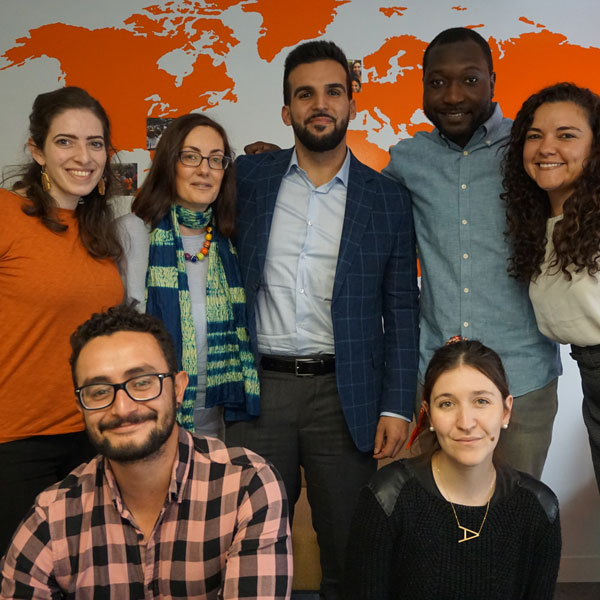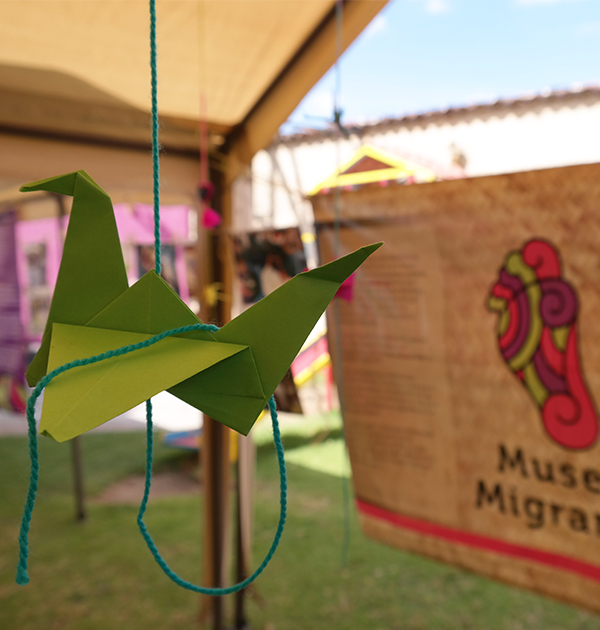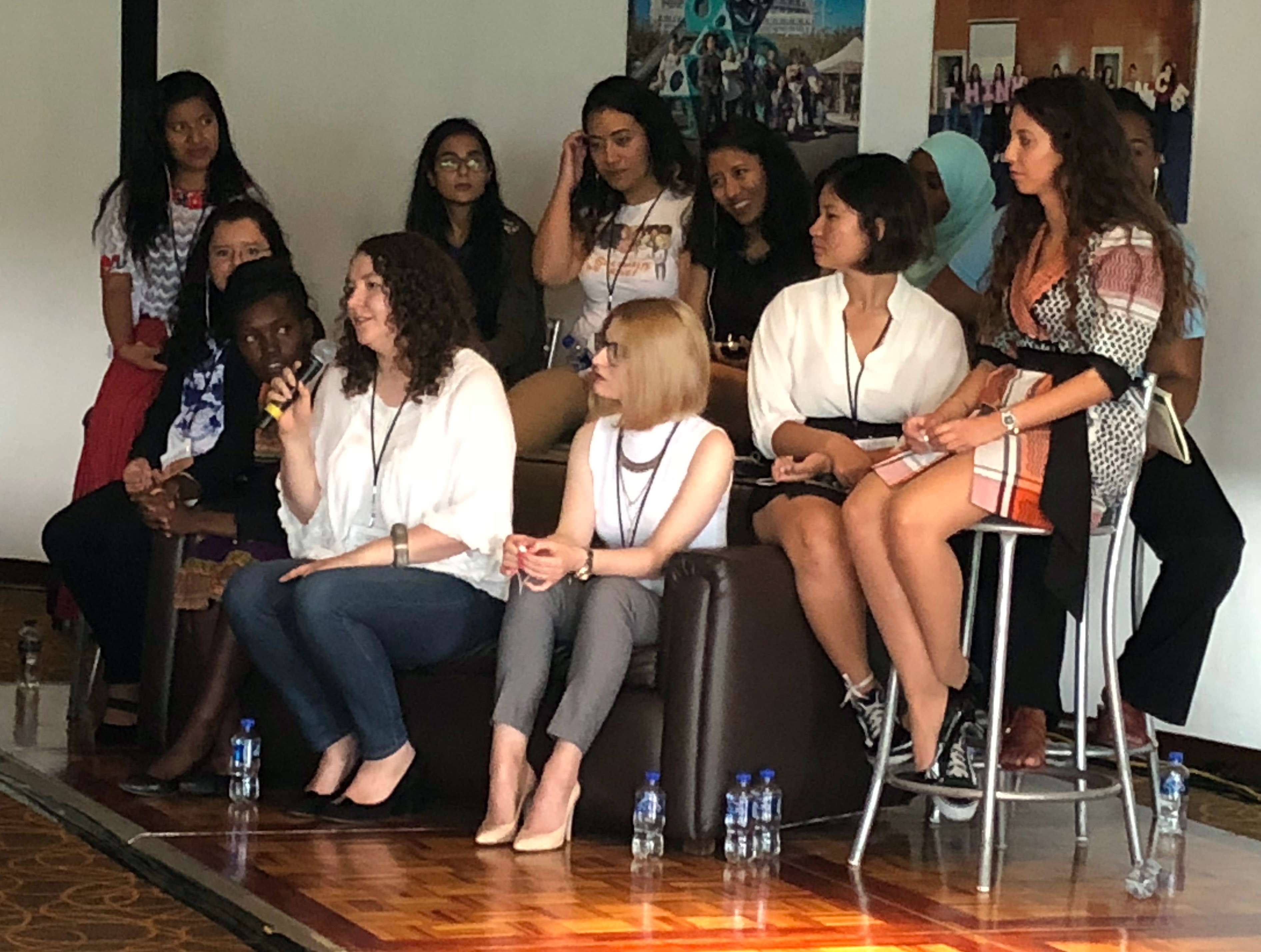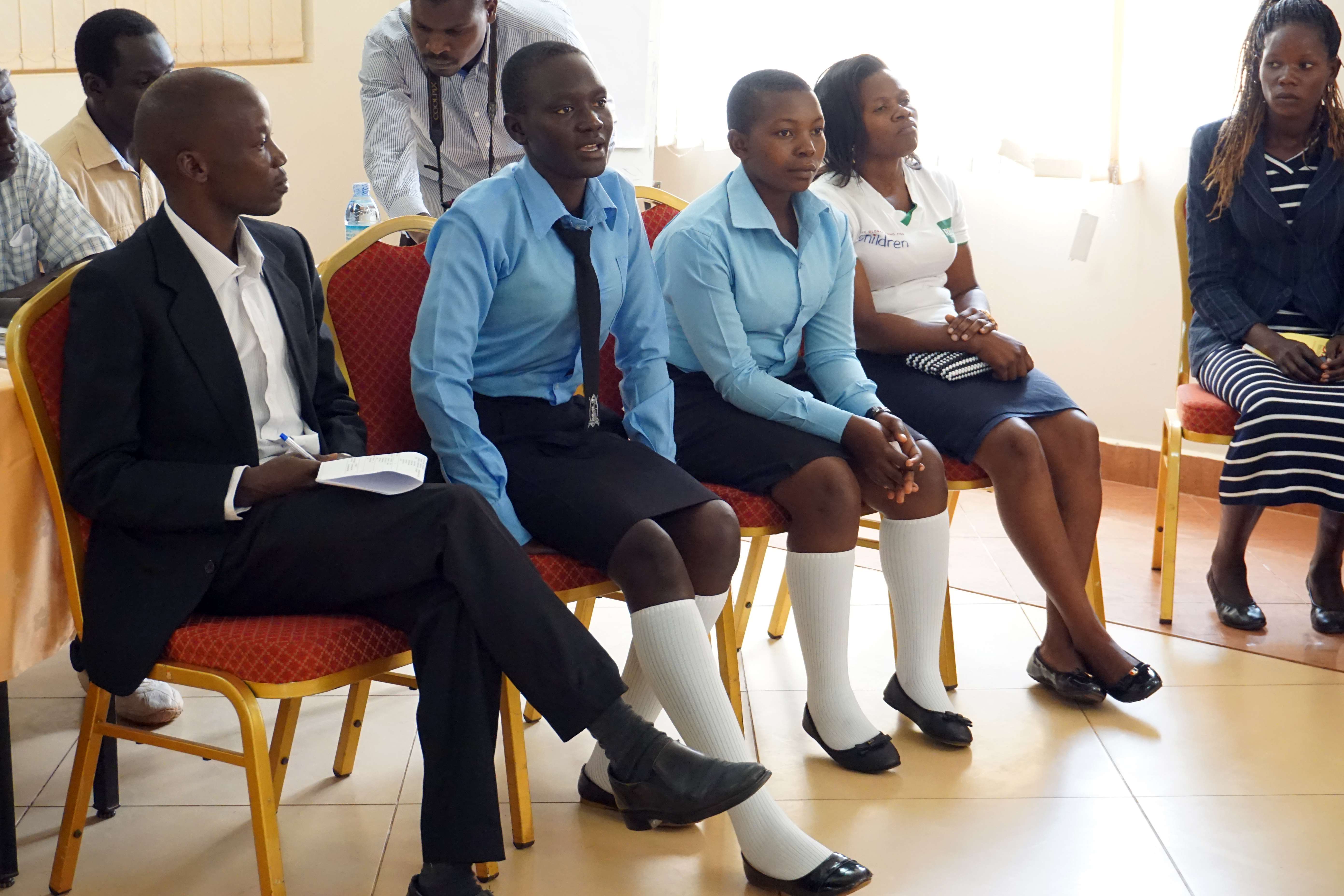This blog was written by Global Fund for Children’s spring 2021 intern Daniela Barahona and by GFC Program Manager for Advocacy and Movement Building Vanessa Stevens.
As part of a broader effort to amplify youth voices, GFC is involving young people in two important grantmaking processes.
Around the world, youth are speaking out about the issues impacting their lives, communities, and futures. Increasingly, young people are also speaking up through participatory grantmaking.
Grantmaking is shifting toward greater inclusion, recognizing that traditional funding practices often exclude many communities. Instead, participatory grantmaking embraces community members, with their lived experiences, as experts – no one better understands which issues are most urgent than those experiencing them.
According to Candid’s GrantCraft guide, Deciding Together: Shifting Power and Resources Through Participatory Grantmaking, “Participatory grantmaking cedes decision-making power about funding – including the strategy and criteria behind those decisions – to the very communities that funders aim to serve.” Through a participatory process, funders confront power imbalances, break down barriers to participation, and listen more deeply to grassroots leaders.
At Global Fund for Children (GFC), members of our Youth Leadership Council (YLC) and a diverse group of youth in the UK are engaging in participatory grantmaking in two new initiatives. While one initiative focuses on child safeguarding best practices and the other on gender and masculinities, both recognize the value of youth perspectives in the grantmaking process.
Youth Leadership Council help shape safeguarding pilot in Uganda
For two members of the YLC, their direct experience as grassroots community leaders informs how they engage in grantmaking. YLC Vice Chair Solomon Tawanda Ndondo from Zimbabwe and YLC Secretary Sunga Kufeyani from Malawi recently participated in selecting an intermediary organization to re-grant funds for a new project in Uganda initiated by the Funder Safeguarding Collaborative and coordinated by GFC. The pilot will support community organizations to articulate their approach to strengthening organizational cultures and practices that keep people safe, ensuring that local knowledge and expertise define the most effective approaches to safeguarding within a Ugandan context.
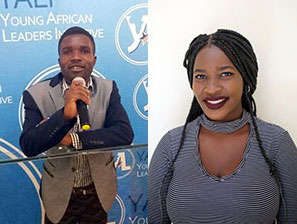
In April 2021, both Solomon and Sunga joined the committee that reviewed applications and selected the intermediary partner. They played a key role in the discussion around the selection criteria and took part in due diligence procedures, learning about that side of grantmaking for the first time.
“I really liked the whole process and that we were involved in its entirety,” Solomon said. “I really felt like a part of the GFC family and that we as young people were really involved. It was an opportunity to gain leadership and negotiation skills.”
For Sunga, her participation meant understanding the realities faced by community organizations seeking to build better partnerships. “Most grassroots organizations in Africa are led or started by young people,” Sunga said. “I started a grassroots organization, so I have a better understanding of advocating for them. It’s crucial because my experience shows how we put unrealistic expectations on grassroots movements. In this selection process, I was passionate about finding a grassroots organization that will work to find and aid other grassroots organizations.”
Youth fund peer-led initiatives in England to promote healthy masculinities
Through GFC’s Exploring Masculinities in England initiative, 11 young people ages 18 to 25 are designing a grant pool to fund youth-led projects promoting healthy masculinities. While the initiative also funds a network of ten community-based organizations engaging young people in exploring masculinities and gender justice, UK Program Officer Katherine Gilmour recognized the importance of giving young people decision-making power.
“Far too often, youth voices are silenced in conversations about gender, and can bring new perspectives to issues about gender and masculinities for social change in their communities,” said Katherine, expressing her excitement to give up space in grantmaking for young people to take the lead.
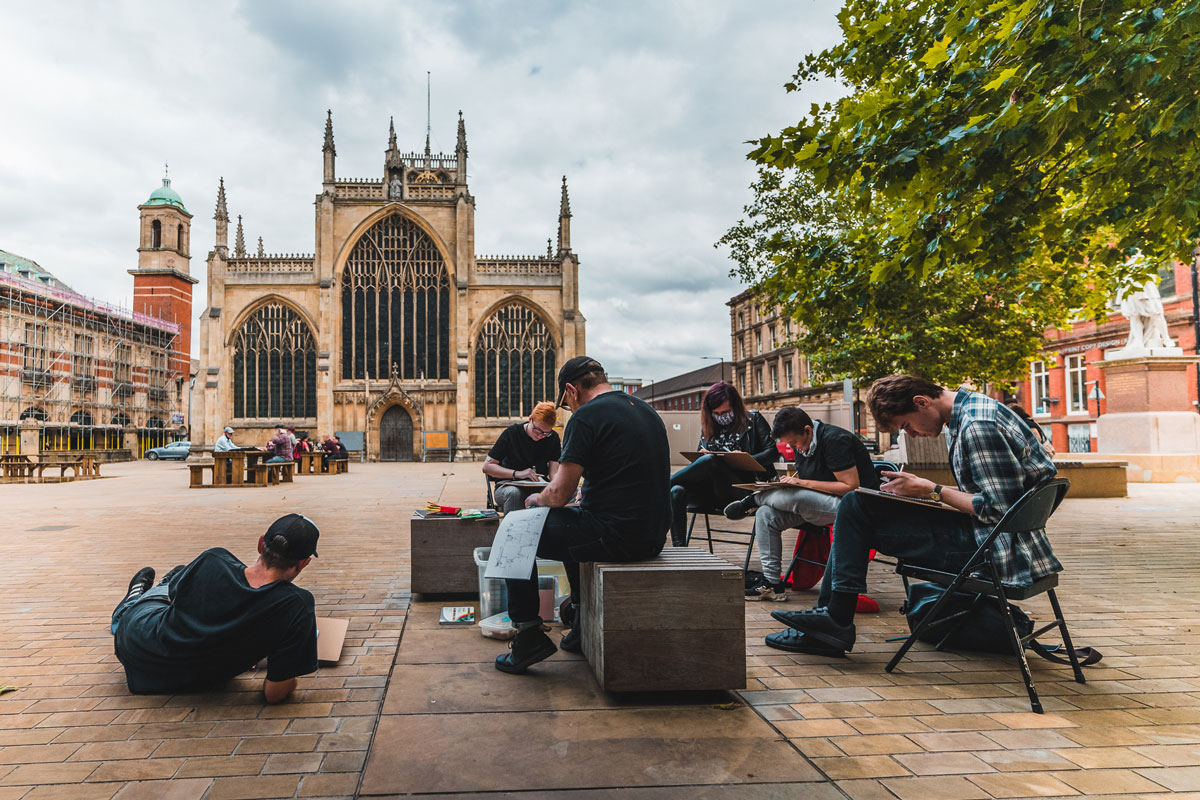
The youth panel, which was launched in May 2021, is learning about grantmaking, fostering new peer connections, and discovering creative, youth-led initiatives encouraging healthy masculinities. The panelists will design all aspects of an open-call grantmaking process – including the criteria, application, and decision-making and final selection processes. GFC will get to see how young people re-envision grantmaking, including whether young people prioritize criteria differently, design a more youth-friendly application, reach more diverse applicants, and choose initiatives we might not otherwise have heard of or selected.
Katherine is keen to ensure meaningful and accessible participation throughout the process. Recognizing the time commitment and young people’s expertise, youth panel members are receiving a stipend. GFC is also lending Chromebooks and hot spots to young people who don’t have access to a computer or Wi-Fi. The grantmaking process – which GFC is facilitating in partnership with a local youth-centered organization called Participation People – is alive with fun engagement, including activities involving Legos and care packages. Already, the process is a significant departure from traditional grantmaking, and GFC is eager to support and celebrate the young people on this journey.
Hopes for youth participatory grantmaking
As GFC team members and YLC members engage in participatory grantmaking, we are committed to learning from the process and its outcomes.
Sunga believes young people will shift power through participatory grantmaking. “I choose to believe that a lot of young people nowadays are conscious of social justice, so they can point out problematic behaviors, stigma, and discrimination,” she said. Sunga notes that this also means not looking for perfect organizations, but instead for grassroots organizations close to marginalized communities.
Solomon also views these grantmaking initiatives as an important opportunity to support grassroots and youth civil society.
“I believe that if funders would really take the time and resources to engage young people, their programs would be more effective, and remove a lot of the red tape that excludes youth-led organizations,” he said. “Youth know what they are doing and what they want.”
Katherine agreed. “Youth are impatient for change, and have an appetite to speed things up,” she said. “Engaging young people in decision-making is still so rare, when it should be the norm.”
GFC is proud to be part of the movement for participatory grantmaking and to champion opportunities for young people to make decisions about their lives, communities, and futures.
Header photo: A young person participating in a program run by The Warren Youth Project, one of the organizations in GFC’s Exploring Masculinities in England initiative. © The Warren Youth Project
